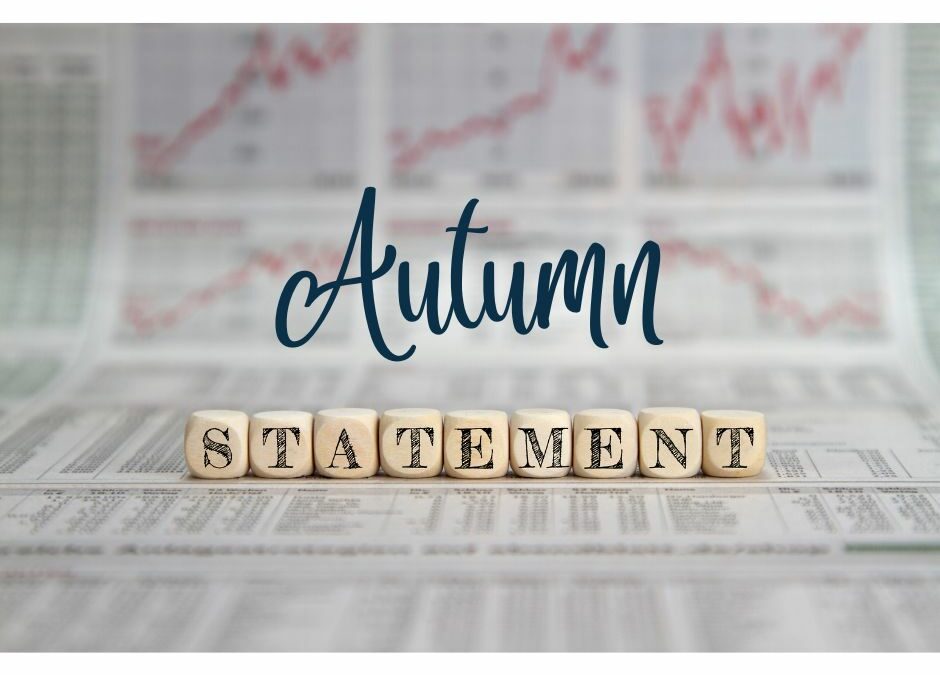On 17th November, Chancellor of the Exchequer, Jeremy Hunt, delivered his first Autumn Statement. This followed a turbulent economic period, since September’s ‘mini-Budget’ by then-Chancellor Kwasi Kwarteng.
In his speech to Parliament, Mr Hunt outlined his reasoning behind the budget, stating that he wants to tackle the rising cost of living and rebuild the economy. He also said that he would like “low taxes and sound money – but sound money has to come first.”
So, what does the Autumn Statement mean for UK businesses? We’ve broken down the key points to help you get a clearer picture of the economic state of play, and how your business could be affected.
Business revaluation rates
Perhaps one of the biggest announcements was on business rates. The Chancellor gave the go ahead for the revaluation of business properties from 1st April 2023. There is, however, a targeted support package of £13.6 billion over a five-year period, to aid this transition.
Businesses that lose their small business status eligibility as a result of revaluation, will have bill increases capped at £600 per year from April 2023.
It’s also worth noting that multipliers will be frozen from 2023–24, which the Treasury claims will be a tax cut worth £9.3 billion over five years.
National Insurance and VAT freeze
A huge announcement for business owners was employer’s National Insurance Contributions being frozen until 2028 – but the employment allowance will remain at its highest level of £5,000.
On top of this, and despite calls for cuts, the Chancellor has said that VAT will remain at 20% until 2026.
National Living Wage increase
In a bid to “make significant progress on ending low hourly pay by 2024–25”, the Treasury has announced that the National Living Wage will go up to £10.42 an hour – its highest ever level.
This is big news for hospitality business owners in particular, as other overhead costs continue to rise too.
Additional announcements
The Chancellor’s Autumn Statement was certainly jam-packed. So, what else did he cover?
- Capital gains tax (CGT) annual exemption will be cut from £12,300 to £6,000 in 2023–24, then to £3,000 in 2024–25, meaning more people will pay CGT. And the dividend allowance will be cut from £2,000 to £1,000 in 2023–24, then to £500 in 2024–25.
- For the next two years, import tax will be removed on more than 100 goods, to reduce costs.
- The deduction rate for small business research and development will now be 86% (from 130% – a large decrease that will affect many digital agency owners), and the credit rate to 10%, which is less impactful.
- From April 2025, electric cars, vans and motorcycles will pay road tax.
What’s next for businesses?
There’s a lot to unravel here, but one thing’s for sure, it’s going to be a challenging road ahead.
Whilst the markets are much calmer than they were following September’s mini-Budget, the Office for Budget Responsibility (OBR) said that the UK population will see the largest fall in living standards in six decades.
This presents fresh pressure and challenges to businesses around the country, as they strive for growth in such a difficult economic climate. Not to mention the projected 7% drop in the average UK household’s disposable income, which will hit the hospitality and retail sectors hard.
Need further support and guidance?
During challenging economic times, Nabarro Poole are available to provide support and advice to businesses across the UK.
We’re committed to understanding your company’s needs, working closely with you to reach your goals. Our team can assist you with forecasting, budgeting, taxes and more.
To discuss how we can help you, get in touch with us today.

Recent Comments